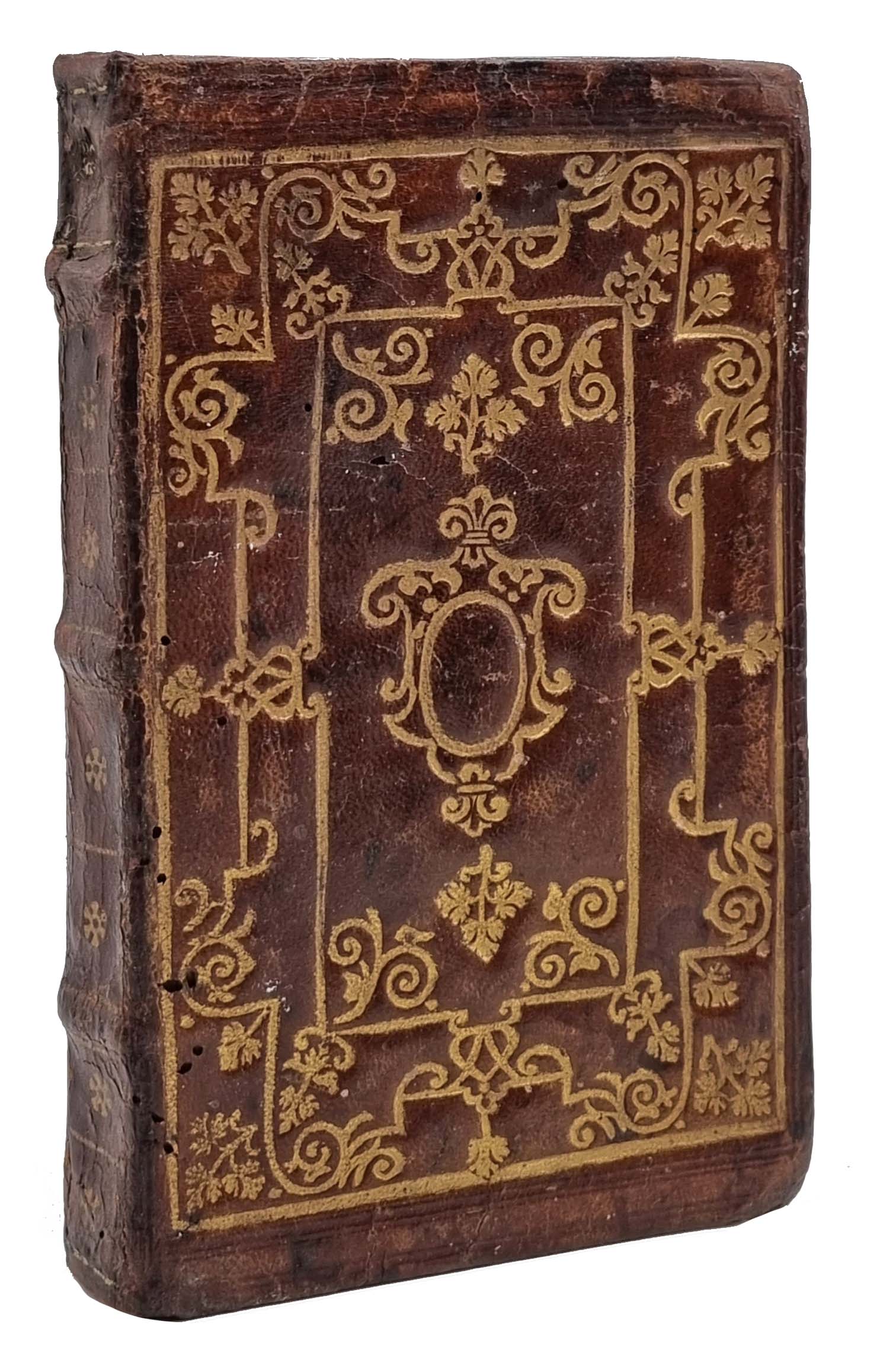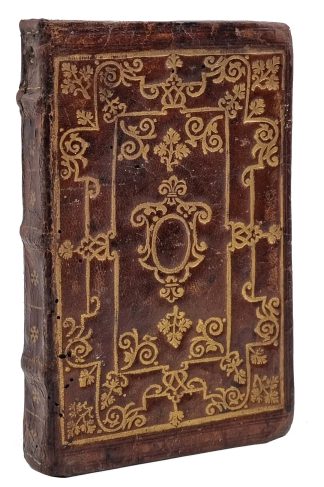GIOVIO, Paolo; DOMENICHI, Ludovico.
CHARMING CONTEMPORARY BINDING
Vita di Consalvo Ferrando di Cordova detto il Gran Capitano.
Florence, [Lorenzo Torrentino], 1552.£4,950.00
8vo. pp.231, [1]. Roman letter, little Italic. Decorated initials. Small tear at outer margin of B8 repaired, small hole at blank foot of last leaf. A very good, clean, wide-margined copy in contemporary Italian goatskin, lacking ties, double blind ruled, outer border gilt ruled to a design of gouges and arabesque, gilt stamped fleurons to corners, central panel with gilt-stamped fleurons, gilt curl tools to corners and gilt blank armorial centrepieces, raised bands, gilt rosettes to spine compartments, all edges gilt and gauffered, scattered tiny worm holes to upper cover, head and foot of spine, corners and upper and edges of lower cover repaired.
The charming contemporary binding, produced in a skilled provincial workshop most probably in Tuscany, displays the influence of 1540s-early 1550s Roman bookbinding. The models for the curl tools and the geometrical knot on the inner border are found on bindings produced for the great bibliophiles Giovanni Battista Grimaldi (cf. de Marinis I, 739, 751) and Antonio Filareto (cf. de Marinis I, 857). In the second half of the C16, the ‘pilgrim’ watermark, on the eps here, appears most frequently in north-western Italy, but also Pisa and Sicily (cf. Briquet).
A very good copy of the second edition in Italian of Paolo Giovio’s famous biography of the Spanish general Gonzalo Fernández de Córdoba (1453-1515), considered the first to make gunpowder weapons an integral part of warfare. Written in Latin c.1525 and published by the historian Giovio (1483-1552) in 1549, it was translated into Italian by Ludovico Domenichi in 1550. Known as ‘El Gran Capitán’, Fernández de Córdoba was a key figure in the Conquest of Granada (1481-91) and the Italian Wars (1494-1505). ‘The ambassador of Charles V to Rome, Luis Fernández de Córdoba, duke of Sessa, commissioned Giovio to vindicate the reputation of his father-in-law, Gonzalo, the most brilliant general of the age. After winning the kingdom of Naples from the French, the “great captain” had been forced into retirement in Spain by the jealousy of Ferdinand of Aragon, who suspected him of wanting the crown of Naples for himself, and the duke of Sessa feared that the great soldier’s reputation was being diminished by official annalists and “foolish poets”’ (Zimmerman, p.65). The work begins with Domenichini and Giovio’s dedications to the Captain, proceeding with the faction wars of the house of Córdoba, a detailed account of Gonzalo’s feats at the siege to reconquer Granada from Muslim dominion, and during the Italian Wars whereby Naples was brought under Spanish rule. Giovio’s work achieved great popularity, rescuing the reputation of the captain who first integrated the use of gunpowder weapons into the Spanish artillery, with the help of battlefield fortifications.
NYPL, Penn and UCLA copies recorded in the US. USTC 833187; EDIT16 21185; Brunet, III, 583; Graesse, III, 490; Gamba, p.424. T. C. Price Zimmerman, Paolo Giovio (1995).In stock





